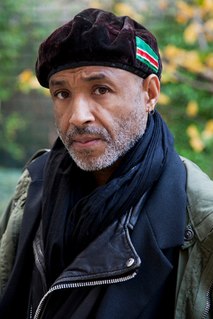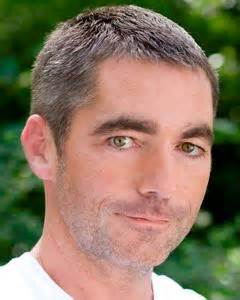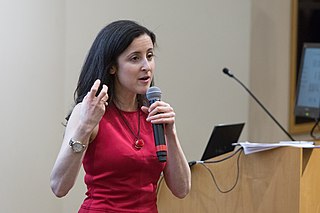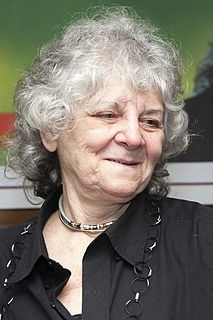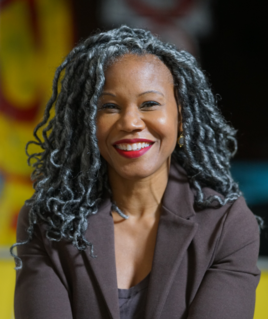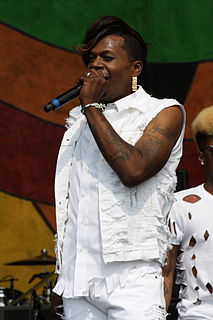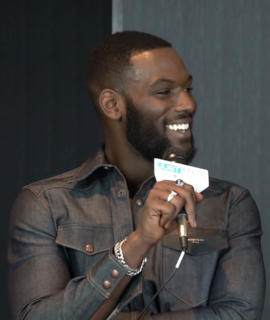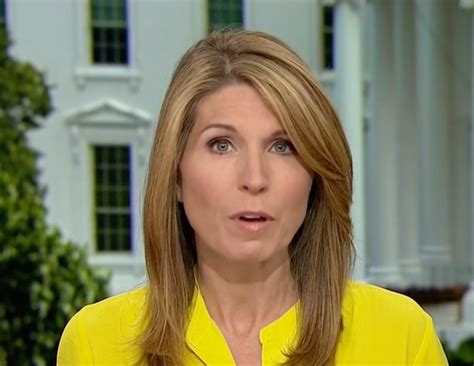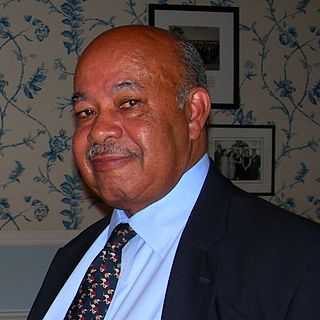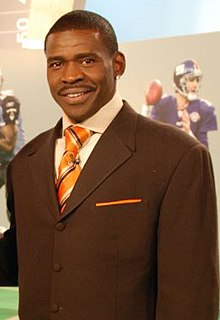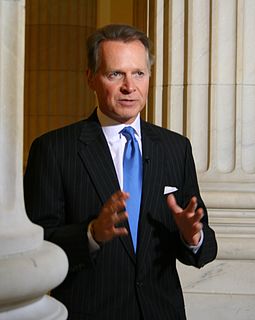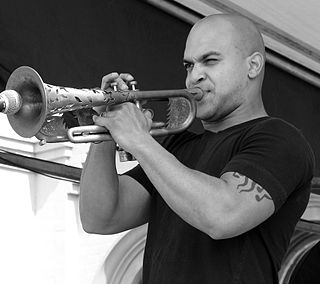Top 242 Katrina Quotes & Sayings - Page 4
Explore popular Katrina quotes.
Last updated on November 18, 2024.
The world, post-Katrina, was a hard time for my city. The hardest time. For people who didn't live through it, no words can fully express the pain, the rage, the grief, and the futility we New Orleanians felt. For the people who did, words seemed like a feeble protest against a relentless night without end.
Prior to Katrina, the South Bronx and New Orleans' Ninth Ward had a lot in common. Both were largely populated by poor people of color, both hotbeds of cultural innovation: think hip-hop and jazz. Both are waterfront communities that host both industries and residents in close proximity of one another.
Depending on how quickly you get ocean rise, you have people who live in river deltas [at risk]. Bangladesh is largely a river delta, and the rising sea level means that when storms come in, the human sanitation is backing up, the ability to farm, it's destructive-type situations like you saw in New Orleans with Katrina. You're increasing the frequency of that stuff in low-lying areas fairly dramatically.
But people turn on their televisions. They turn on their televisions and they see what's happening in Iraq. The American people are not stupid. And the one thing they understand, they understand how incredibly mismanaged and bungled this war has been by the civilians in this administration. And - I mean, you can't paper over that, any more than you can paper over Katrina.
I had to pinch myself. I got the call and didn't expect it. And right up 'til nearly the end of filming, I was thinking, 'Am I actually doing a film with Akshay Kumar?' because I was a massive Akshay Kumar fan before, and the first film that I ever watched was his and Katrina's film, 'Namastey London.'
Much of the attention on oceans has portrayed oceans as a villain. Warm water strengthened Hurricane Katrina that pounded Louisiana. Rising sea level will flood islands and coastal areas. Or, we're talking about new opportunities like a new shipping lane in the Arctic because of melting sea ice. These may be the obvious problems, but they're probably not the biggest ones.
For we have a choice in this country. We can accept a politics that breeds division, and conflict, and cynicism. We can tackle race only as spectacle - as we did in the OJ trial - or in the wake of tragedy, as we did in the aftermath of Katrina - or as fodder for the nightly news. We can play Reverend Wright's sermons on every channel, every day and talk about them from now until the election, and make the only question in this campaign whether or not the American people think that I somehow believe or sympathize with his most offensive words.
My upbringing has been pushing and pulling my work my whole life. At first it pushed me away, as I sought to clean up my mind with a style that was slick and glossy, aspirational and wrapped in fantasy. That's still largely how I approach my fashion work. More recently it's pulled me back, particularly since Katrina, and as I get older and lose some of that shame that's inherited with poverty.
Class certainly loomed large in Katrina's aftermath. Blacks of means escaped the tragedy; blacks without them suffered and died. In reality, it is how race and class interact that made the situation for the poor so horrible on the Gulf Coast. The rigid caste system that punishes poor blacks and other minorities also targets poor whites.
When Wal-Mart brings water down to the Katrina victims, it's not doing that to be nice; it's doing it to make larger profits and to increase the value of its shares. If its actions are not accomplishing those objectives, the shareholders can sue the executives, and sue them successfully, because it is illegal for them to act on behalf of any other reason than increasing the value of their shares. There is nothing wrong with that. That is the way that they were created and the way we want them to function to increase prosperity in the market.
Corporations often partner with government after natural disasters, as many companies did in the aftermath of Hurricane Katrina in 2005. As a rule, however, long-term civic/corporate partnerships are still rare .But this need not remain the status quo, as many opportunities are available for such partnerships.
We are deeply saddened by the tremendous loss of life and devastation caused by Hurricane Katrina, .. Starbucks has a long tradition of striving to bring together people and communities where we do business. We extend our heartfelt condolences to the bereaved families and many others impacted by this natural disaster; our prayers and thoughts are with all the families who have lost loved ones.
As a Christian when I watched the people in Katrina they lost everything. I'm not just speaking about the Black people, I'm talking about White, Chinese, Oriental, whoever lost stuff. My heart went out to 'em. I said as a Christian it would be a sin before God for me to wear my gold around people, flashing it in their face and they don't have nothing. So I said never again would I wear my gold, I want people to know I have a heart of gold and not the gold around my neck.
Louisiana taught me another level of humility. Everyone is so content, not socially content but spiritually. Everyone is happy with who they are and loves their city regardless of what has happened here with Katrina and all the different stories. They have a sense of pride and it really rubbed off on me.
Do you really want to know why I'm doing all this goodwill, and why I'm an ambassador for Habitat for Humanity and why I gave a million to [relief efforts for Hurricane] Katrina? It's because I feel guilty about the huge hole in the ozone layer my haircuts created. It's my responsibility to right the wrongs of the Eighties.
Hurricane Katrina overwhelmed levees and exploded the conventional wisdom about a shared American prosperity, exposing a group of people so poor they didn't have $50 for a bus ticket out of town. If we want to learn something from this disaster, the lesson ought to be: America's poor deserve better than this.
While Hurricane Katrina demonstrated the dangers of failing to evacuate hospitals from the path of a storm, Hurricane Gustav demonstrated that moving thousands of sick people has its own risks. Gustav also highlighted a critical vulnerability of American hospitals - an inability to withstand prolonged blackouts.
After Hurricane Katrina, many people said that the levees were not as effective as the natural vegetation that had been removed at the coast. So that means as we develop these seaside land masses, we need to have enough knowledge to not regret in the future. We know that the US government is literally buying these lands back to allow them to be rehabilitated.
For me what was amazing was consumerism of people survived after Katrina. You see in a yard that the SUV is gone but they left the Ferrari or the more expensive car because it just wasn't practical. They couldn't get all their stuff in it. So you see this beautiful car totally destroyed; motorcycles. You walk into these houses - we were with the New Orleans police when they would go into the houses - we'd go through these houses and we were just amazed at how much stuff that had been accumulated and how much was left behind.
People always related to President Bush, but in the aftermath of Hurricane Katrina and the Iraq War, his numbers collapsed because people didn't feel like he handled those properly. Obama is the inverse. He was elected because he was an extraordinary guy, but the fact that he isn't ordinary has turned out to be politically damaging.
My family and I survived Hurricane Katrina in 2005; we left my grandmother's flooding house, were refused shelter by a white family, and took refuge in trucks in an open field during a Category Five hurricane. I saw an entire town demolished, people fighting over water, breaking open caskets searching for something that could help them survive.
The Bush administration has now provided three case studies in arrogance, isolation and destructiveness: Michael Brown during Hurricane Katrina, Ambassador Jerry Bremer in Baghdad and Secretary Paulson at Treasury. It is a tragic and very expensive legacy. No conservative and no Republican should doubt how much it has hurt our cause and our party.
A good two years after Hurricane Katrina I remember feeling so devastated and so ignorant that there was so much damage still left. I felt like here I was an American and this is an American city and the government hasn't done enough and people haven't given back enough. Everyone forgot and the city was lying in waste.
She was the murderous mother who cut us to the bone but left us alive, left us naked and bewildered as wrinkled newborn babies, as blind puppies, as sun-starved newly hatched baby snakes. She left us a dark Gulf and salt-burned land. She left us to learn to crawl. She left us to salvage. Katrina is the mother we will remember until the next mother with large, merciless hands, committed to blood, comes.
I named my camel Katrina. She was a natural disaster. She slobbered everywhere and seemed to think the purple streak in my hair was some kind of exotic fruit. She was obsessed with trying to eat my head. I named Walt's camel Hindenburg. He was almost as large as a zeppelin and definitely as full of gas.
Fraud is common when you give away billions. Fraud related to Hurricane Katrina spending is estimated to top $2 billion. In addition, debit cards provided to hurricane victims were used to pay for Caribbean vacations, NFL tickets, Dom Perignon champagne, 'Girls Gone Wild' videos, and at least one sex change operation.
Please, accept the most sincere words of sympathy over the natural disaster that affected the United States . I know that hurricane Katrina that hit the US south-western coast led to casualties, left homeless dozens of thousands of US citizens and inflicted a strong damage to the economy of this region. I ask you to convey my condolences to the next of kin of those killed,.
If your intentions are already bad, and then you still make giant mistakes, it seems like things just get worse. I get little joy seeing this, because what I don't see is the public saying, "Wow, those guys are really bad, maybe we should re-evaluate everything." I don't see that response with the scandals, I don't see it with the indictments, I don't see it after Katrina, I don't see the public going, "Wow, let's really re-examine the entire direction this country is going."
Recent events in the aftermath of Hurricane Katrina have reaffirmed for me, however, the complete folly of any Republican strategy to increase black representation in the Republican Party by appeals based on race. Whatever the name- 'African American Outreach' or 'Black Republicans for Bush'- any effort to attract blacks or any other ethnic group to the Republican party, based on explicit or implicit appeals to race or ethnic identity, are not only a waste of time and resources, but are also misguided and potentially quite damaging to the nation.
I often notice how students can gain the capacity to use certain critical methodologies through engaging with very different texts - how a graphic novel about gentrification and an anthology about Hurricane Katrina and a journalistic account of war profiteering might all lead to very similar classroom conversations and critical engagement. I'm particularly interested in this when teaching law students who often resist reading interdisciplinary materials or materials they interpret as too theoretical.
What is kind of beautiful about Katrina is that even though the media and officials are working hard at telling us everyone in New Orleans was a monster, in the immediate aftermath more than 200,000 people invite displaced strangers into their homes through hurricanehousing.org and an uncounted horde go to New Orleans and the Gulf Coast to give, to love, to be in solidarity, and to rebuild.
After Hurricane Katrina, I wanted to go back to New Orleans to help musicians return to the city. But Andrew Young advised me, "If you want to help people, go work at an investment bank." His contrarian advice opened my eyes to the importance of capital. "Learn how to make some money before you give it away." I learned that you can bring about good in the world especially if you have a paycheck.
Bhagavad Gita is very relevant to modern times when you see things like global warming, climate chaos, changing weather patterns, natural disasters like hurricane Katrina, extreme poverty, economic disparities, social injustice, war, and terrorism - these are the projection of a collective consciousness that's in disarray.
I try and remind our viewers that climate is always in a state of flux and yes, the world has warmed over the last 25 years but claiming that Katrina is a product of global warming is absurd. We have had much stronger hurricanes hit the United States in the past, the Labor Day or Keys hurricane of 1935 and Camille in 1969 to name just two. There is much more development now on our shores.
I must say that the Katrina response does help me better understand the situation in Iraq. The best bet is that the president doesn't actually know what's happening there, is cocooned from reality, has no one in his high-level staff able to tell him what's actually happening, and has created a culture of denial and loyalty that makes fixing mistakes or holding people accountable all but impossible.
The first club that reopened in New Orleans was Caesar's, and they called me immediately and said let's do a regular night with you here. So we started FEMA Fridays. It was the only club open in the city, and a lot of people had a lot of money from Katrina, the checks and stuff, so the joy inside that club - I don't think that'll ever come back.
Hurricane Katrina was the storm of the 21st century. It devastated an area the size of Great Britain. More than 1,800 Americans died. Three hundred thousand homes were destroyed. There was $96 billion in property damage. I served on the Louisiana Recovery Authority. I saw Congress write one big check and then skip town.
Moreover, it is so important that people have the opportunity to share their stories and have them documented. There have been large-scale oral history projects after many events, from September 11th to Hurricane Katrina. Many oral history projects are much more confined, but equally valuable. We can learn about different working conditions, living conditions, trauma experiences and much more through oral history.
I think Katrina is one more indication of how inefficient and corrupt this Administration is, and indicates the absolute lack of seriousness that [George W.] Bush has in making the government respond to the needs of the people. They are so separated from the lives of normal, low-income people that it never occurred to them that if you're poor and have no money, no car, that you can't leave.
During a large disaster, like Hurricane Katrina, warnings get hopelessly jumbled. The truth is that, for warnings to work, it's not enough for them to be delivered. They must also overcome that human tendency to pause; they must trigger a series of effective actions, mobilizing the informal networks that we depend on in a crisis.
The stark and tragic images of human suffering in the aftermath of Hurricane Katrina have reminded us yet again that civil rights and equal rights are still the great unfinished business of America. The suffering has been disproportionately borne by the weak, the poor, the elderly and infirm, and largely African-Americans, who were forced by poverty, illness, unequal opportunity to stay behind and bear the brunt of the storm's winds and floods. I believe that kind of disparate impact is morally wrong in this, the richest country in the world.
I don't think I'm the best-looking actress around. I'm not Katrina Kaif; she is stunningly beautiful. There are some roles that might need a beautiful girl, and there would be a doubt in a director's mind whether he should cast me. But that perception will change with time. I'd like to believe actresses look better with experience.
Patricia Smith is one of the best poets around and has been for a long time. Her Blood Dazzler is full of capacious soul and formal inventiveness: the compassion and artfulness necessary to capture the tragedies and Tragedy of Katrina. Smith is herself a storm of beautiful, frightening talent. Her words will wash you or wash you away. I consider this new book a major literary event.

